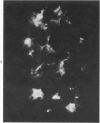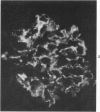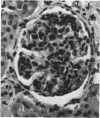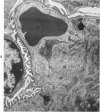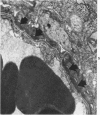Abstract
Immune-complex-mediated glomerulonephritis (IC-GN) was induced with daily intraperitoneal injections of horse apoferritin (HAF) for varying intervals in Swiss albino and BALB/c mice. Anti-HAF antibody avidity in plasma pools from mice with predominantly mesangial immune deposits was compared with avidity in plasma pools from mice with predominantly capillary wall deposits. Plasma from Swiss mice having predominantly mesangial deposits after 7 or 14 days of HAF had higher avidities than plasma from Swiss mice with predominantly capillary wall deposits after 14 days or more than 28 days of HAF. Plasma from BALB/c mice with exclusively mesangial deposits after 7 days of HAF had higher avidity than plasma from BALB/c mice with predominantly capillary wall deposits after 14 or more days of HAF. Therefore, there was a correlation between glomerular site of immune deposition and avidity of circulating anti-HAF antibodies, with higher avidity antibodies associated with mesangial immune deposits and lower avidity antibodies with capillary wall deposits.
Full text
PDF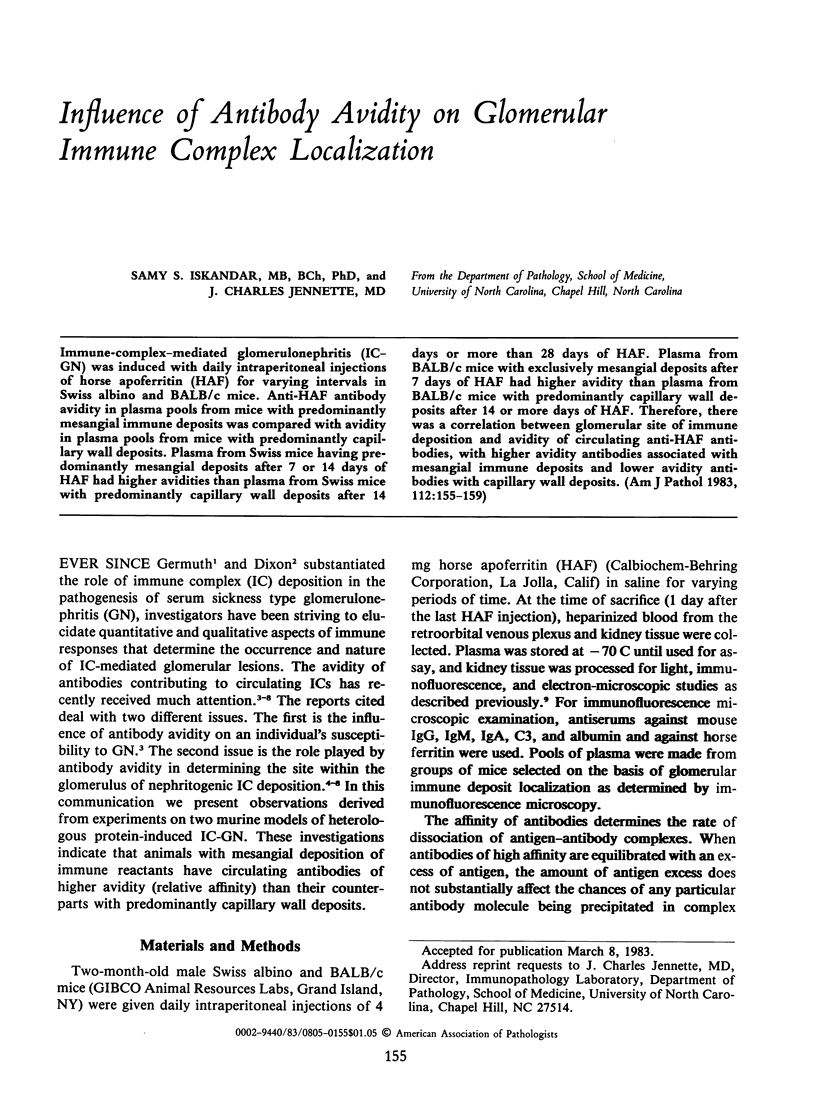
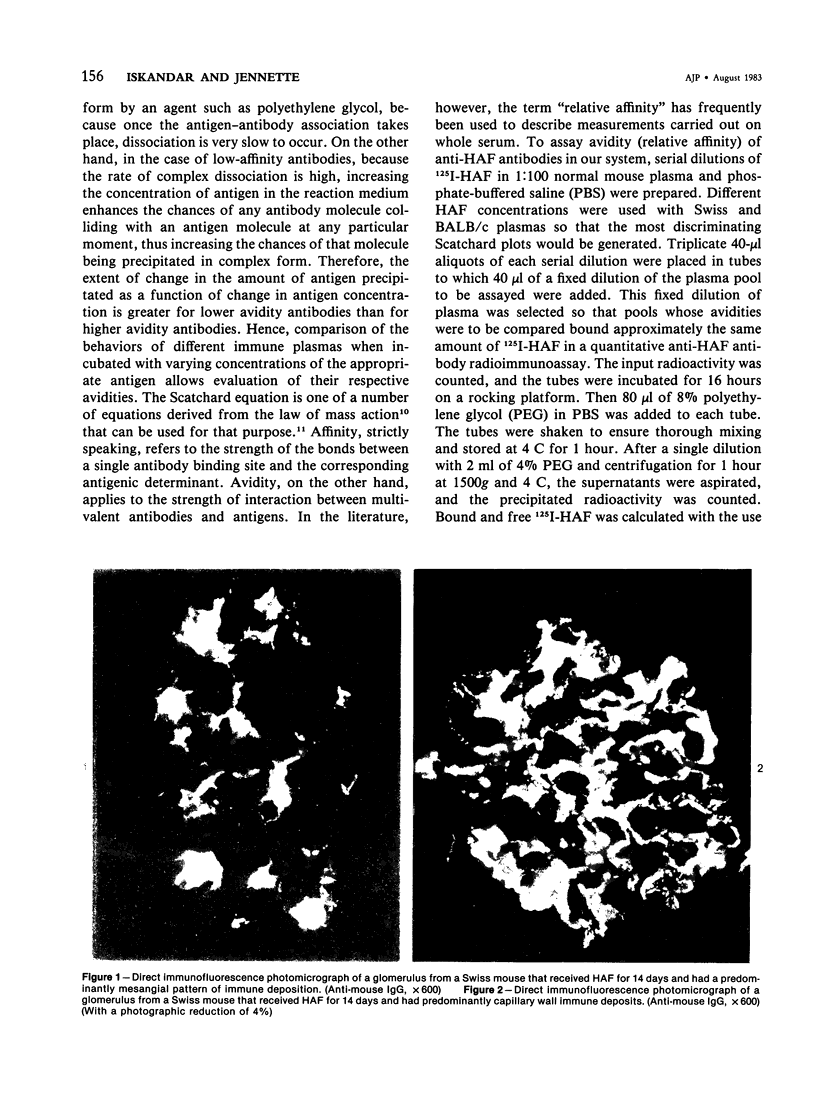
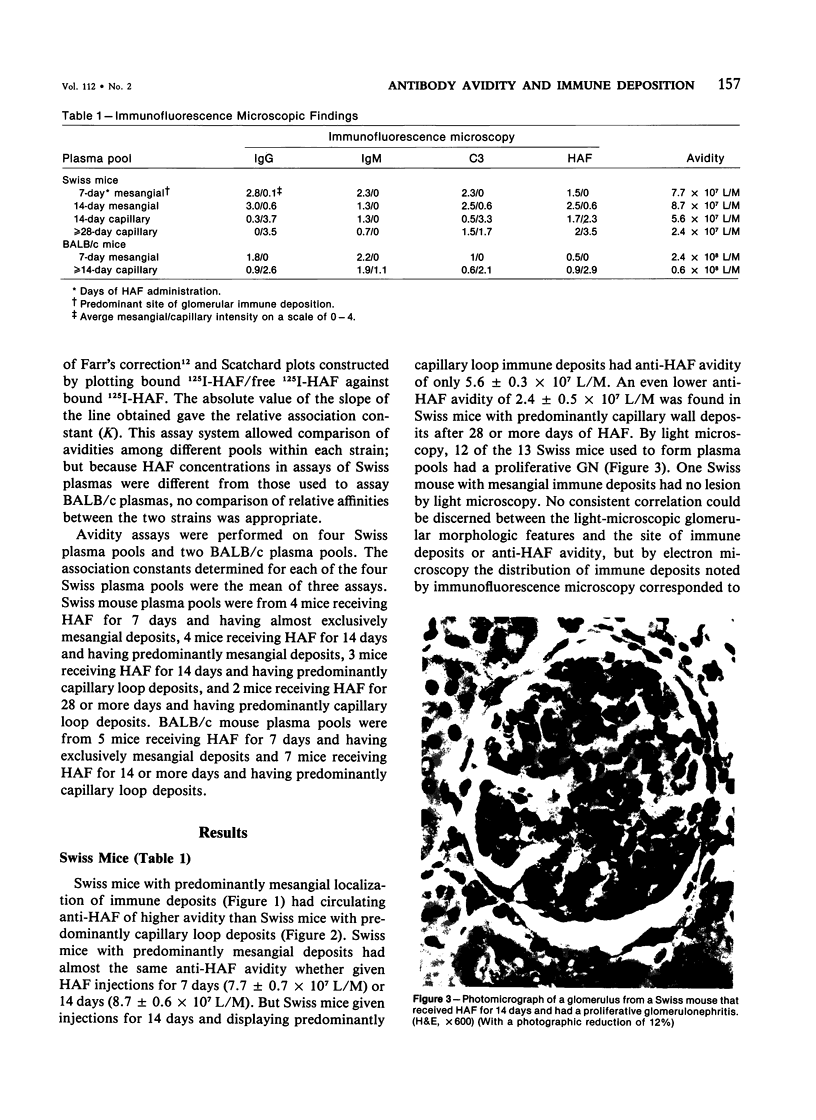
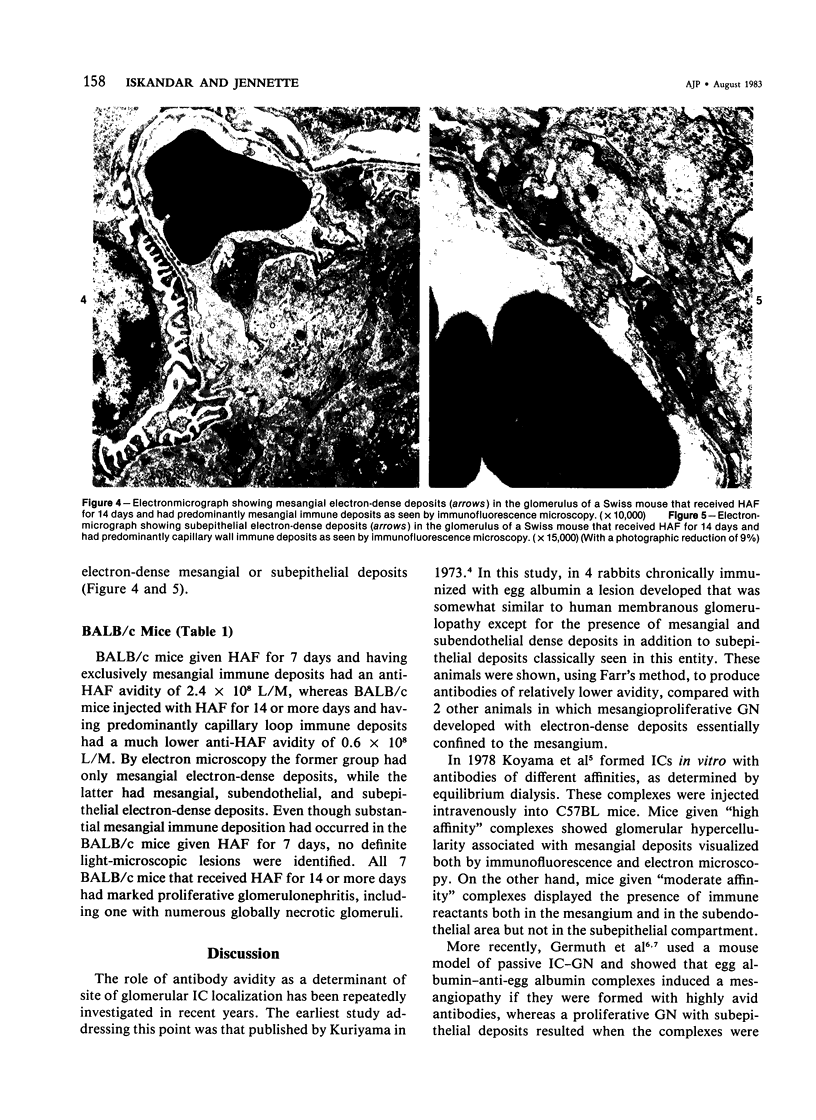
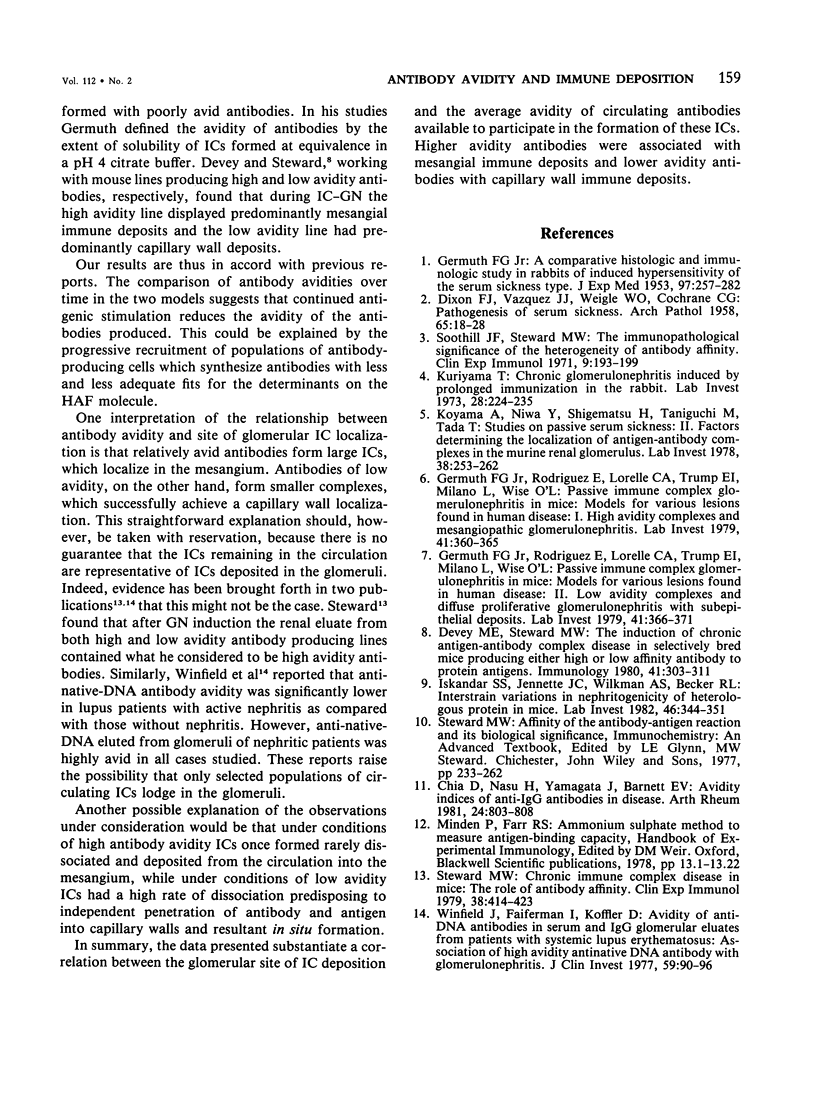
Images in this article
Selected References
These references are in PubMed. This may not be the complete list of references from this article.
- Chia D., Nasu H., Yamagata J., Barnett E. V. Avidity indices of anti-IgG antibodies in diseases. Arthritis Rheum. 1981 Jun;24(6):803–808. doi: 10.1002/art.1780240608. [DOI] [PubMed] [Google Scholar]
- DIXON F. J., VAZQUEZ J. J., WEIGLE W. O., COCHRANE C. G. Pathogenesis of serum sickness. AMA Arch Pathol. 1958 Jan;65(1):18–28. [PubMed] [Google Scholar]
- Devey M. E., Steward M. W. The induction of chronic antigen-antibody complex disease in selectively bred mice producing either high or low affinity antibody to protein antigens. Immunology. 1980 Oct;41(2):303–311. [PMC free article] [PubMed] [Google Scholar]
- GERMUTH F. G., Jr A comparative histologic and immunologic study in rabbits of induced hypersensitivity of the serum sickness type. J Exp Med. 1953 Feb 1;97(2):257–282. doi: 10.1084/jem.97.2.257. [DOI] [PMC free article] [PubMed] [Google Scholar]
- Germuth F. G., Jr, Rodriguez E., Lorelle C. A., Trump E. I., Milano L. L., Wise O. Passive immune complex glomerulonephritis in mice: models for various lesions found in human disease. II. Low avidity complexes and diffuse proliferative glomerulonephritis with subepithelial deposits. Lab Invest. 1979 Oct;41(4):366–371. [PubMed] [Google Scholar]
- Germuth F. G., Jr, Rodriguez E., Lorelle C. A., Trump E. I., Milano L., Wise O. Passive immune complex glomerulonephritis in mice: models for various lesions found in human disease. I. High avidity complexes and mesangiopathic glomerulonephritis. Lab Invest. 1979 Oct;41(4):360–365. [PubMed] [Google Scholar]
- Iskandar S. S., Jennette J. C., Wilkman A. S., Becker R. L. Interstrain variations in nephritogenicity of heterologous protein in mice. Lab Invest. 1982 Mar;46(3):344–351. [PubMed] [Google Scholar]
- Koyama A., Niwa Y., Shigematsu H., Taniguchi M., Tada T. Studies on passive serum sickness. II. Factors determining the localization of antigen-antibody complexes in the murine renal glomerulus. Lab Invest. 1978 Mar;38(3):253–262. [PubMed] [Google Scholar]
- Kuriyama T. Chronic glomerulonephritis induced by prolonged immunization in the rabbit. Lab Invest. 1973 Feb;28(2):224–235. [PubMed] [Google Scholar]
- Soothill J. F., Steward M. W. The immunopathological significance of the heterogeneity of antibody affinity. Clin Exp Immunol. 1971 Aug;9(2):193–199. [PMC free article] [PubMed] [Google Scholar]
- Steward M. W. Chronic immune complex disease in mice: the role of antibody affinity. Clin Exp Immunol. 1979 Dec;38(3):414–423. [PMC free article] [PubMed] [Google Scholar]
- Winfield J. B., Faiferman I., Koffler D. Avidity of anti-DNA antibodies in serum and IgG glomerular eluates from patients with systemic lupus erythematosus. Association of high avidity antinative DNA antibody with glomerulonephritis. J Clin Invest. 1977 Jan;59(1):90–96. doi: 10.1172/JCI108626. [DOI] [PMC free article] [PubMed] [Google Scholar]



